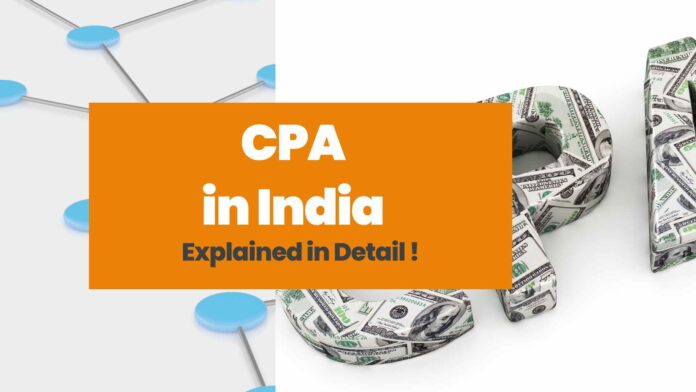Introduction
Are you considering becoming a Certified Public Accountant or a CPA in India? Becoming a CPA in India is a great way to launch your career in the accounting and financial world, and there are many opportunities available for those who have obtained their qualifications. Here is an overview of the CPA qualifications, training, and requirements necessary to become licensed in India.
The primary governing body which regulates CPA qualifications in India is the Institute of Chartered Accountants of India (ICAI). To become certified, you will need to pass the ICAI’s certification exam and comply with its other requirements. Once you have received your certification, you will be allowed to practice public accounting which may include auditing, tax preparation, bookkeeping services, business consulting, and other speciality fields related to accounting.
In order to obtain your Indian CPA license, you must first complete certain educational requirements. You must have either an undergraduate degree or a postgraduate degree in finance or accounting from an accredited college or university. Additionally, CPAs must also have three years of work experience under the supervision of a qualified Indian CPA or auditor.
How to apply for the exams of CPA in India
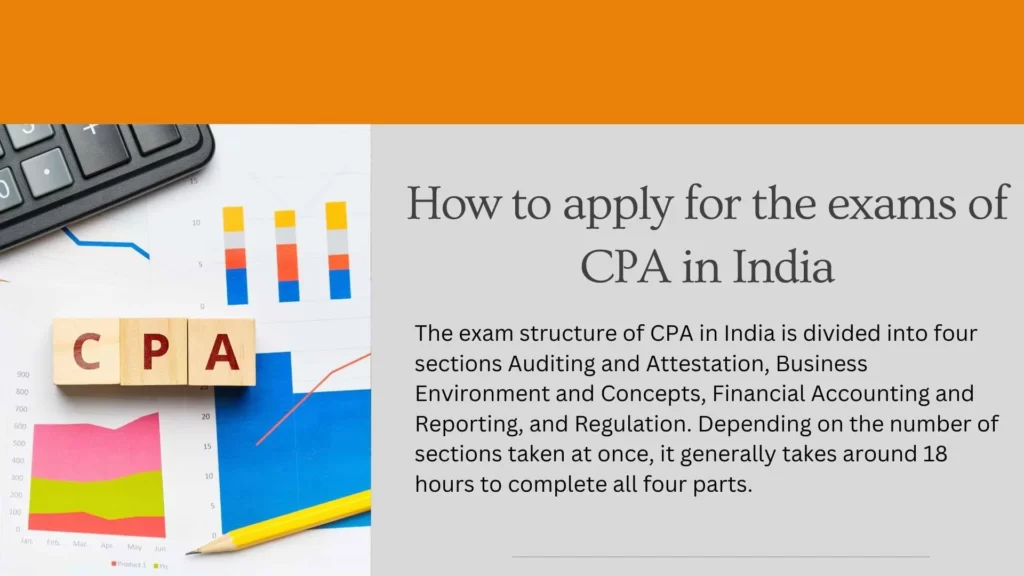
If you’re looking to get a CPA in India, this article will provide you with the information you need to know about how to apply for the exams.
The exam structure of CPA in India is divided into four sections Auditing and Attestation, Business Environment and Concepts, Financial Accounting and Reporting, and Regulation. Depending on the number of sections taken at once, it generally takes around 18 hours to complete all four parts.
The application process requires candidates to register online through the National Association of State Boards of Accountancy (NASBA). Once registered, applicants must pay a fee based on the number of sections they are taking. The fee can range from around $500- $1,500 depending on where you’re located and how many parts of the exam you wish to take at one time. Additionally, applicants must also provide proof of their identity along with validating documents such as educational certificates.
Exam schedules will be provided by NASBA after your application has been accepted. Scheduling for each section usually takes place three months in advance and is subject to availability at different locations in India. It is important that candidates adhere to deadlines when submitting their applications as late applications may be rejected or carry additional fees.
By following these steps, you can successfully apply for the exams of CPA in India. With hard work and dedication, you will be able to reach your goal of becoming a qualified CPA!
Have a look at the best investment banker courses
Eligibility to become a CPA in India
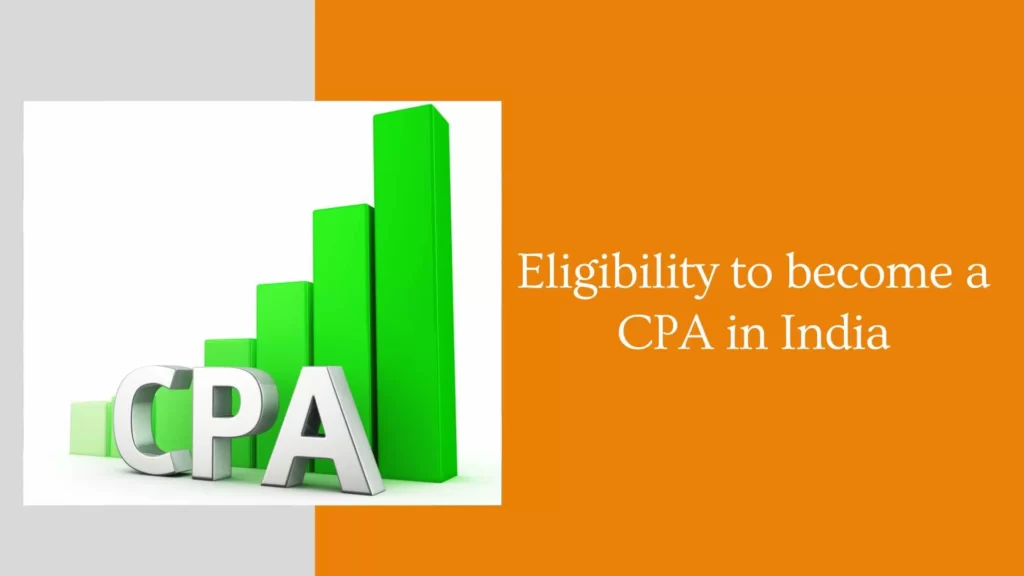
Becoming a CPA is an important step in a successful career in accounting, and there are several eligibility requirements to consider. This Blog section will discuss the qualifications needed, institute recognition, study materials, support and guidance, professional training opportunities, and the benefits of achieving certified status.
To be eligible to become a CPA in India, you must have a Bachelor’s degree or higher in Accounting or Finance from an accredited institution. Additionally, you must have completed coursework related to auditing standards set by the Institute of Chartered Accountants of India (ICAI). The ICAI also recognizes other institutes that offer similar accounting courses such as ICWAI (Institute of Cost and Works Accountants of India).
Once your academic credentials have been established and verified through one of these institutes, you must complete at least three years of supervised practice as an accountant or auditor under a qualified professional CPA. In addition to these academic requirements, candidates are required to pass the CPA exam with scores that meet the minimum passing criteria set by the ICAI in order to become eligible for the CPA designation.
In addition to meeting eligibility requirements, those wishing to become CPAs must also complete certain study materials and obtain professional guidance on best practices within accounting through reputable sources. A variety of study materials exist specifically designed for those looking to become certified CPAs in India. These materials are easily accessible online and provide valuable information on accounting principles and concepts relevant to preparing for the CPA exam.
Also, Give a visit to the best PG Program In Financial Modelling with placement guaranteed
Syllabus of CPA in India
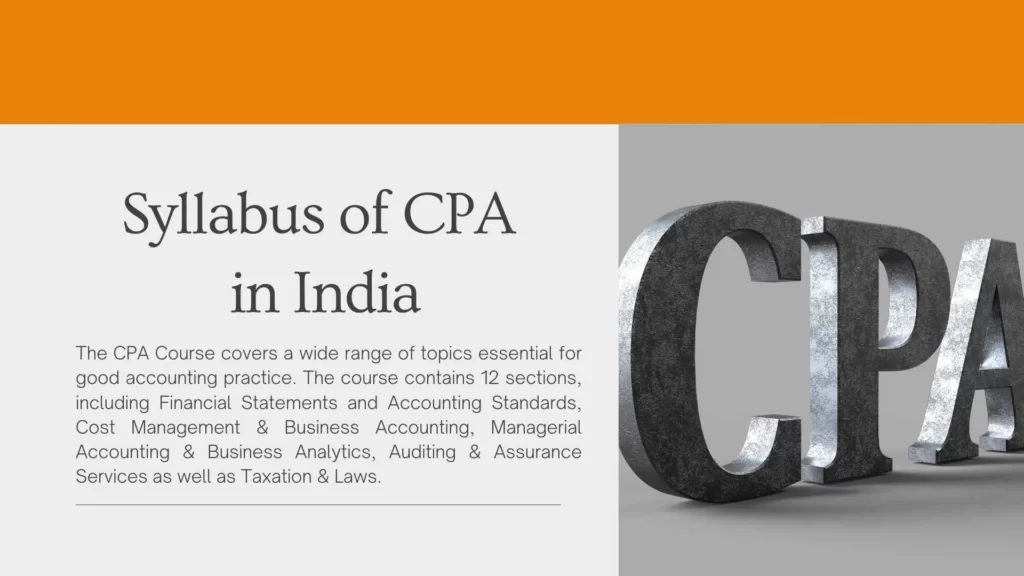
The CPA Course covers a wide range of topics essential for good accounting practice. The course contains 12 sections, including Financial Statements and Accounting Standards, Cost Management & Business Accounting, Managerial Accounting & Business Analytics, Auditing & Assurance Services as well as Taxation & Laws. Each section is designed to cover specific topics within each topic area.
Examination Subjects for each section are based on both practical and theoretical aspects of accounting. These include Corporate Law & Regulations; Principles of Taxation; Accounting Concepts; Cost Analysis & Management; Managerial Accounting Practices; Reporting Practices & Techniques; Auditing Principles & Techniques; and Corporate Governance. In addition to these core topics, students will also receive an introduction to foreign currencies trading, financial markets and international taxation regulations.
The syllabus format is set out by the Institute of Chartered Accountants of India (ICAI). The curriculum is established by combining subject-specific knowledge with practical experience in areas such as auditing, taxation and accounting systems design. Each module has its own set of objectives and assessment criteria which are provided in detail on ICAI’s website. Additionally, there are other examinations that can be taken by candidates who wish to further specialize in certain areas such as IT auditing or tax planning.
Exam Pattern of CPA in India
The Certified Public Accountant (CPA) exam in India is one of the most important tests for those aspiring to become successful accountants. It consists of three parts – all of which must be attempted within a 24-month period and are set by the Institute of Chartered Accountants of India (ICAI).
Question patterns for CPA vary from section to section. For example, Accounting has around 100 MCQs and 45 theory-based questions that require more detailed explanations. Whereas the Business Law portion has around 60 MCQs and 8 long answer questions with descriptive answers required. Questions in the Taxation portion include smaller case studies or scenarios that require you to apply your knowledge from previous sections.
In order to pass the CPA Exam in India and earn your certification, you must score at least 50% in each section as well as an overall score of at least 55%. If you do not achieve these scores, then you can reappear for the exam after a waiting period. Generally, this time period should be between 6 and 12 months depending on your situation but could be longer in certain cases such as if you have failed twice previously or if there have been extensive delays due to technical faults etc.
In some cases, exemptions may be granted under certain criteria like professional/academic qualifications or previous experience/jobs related to accounting etc.
Look at the best PG Program In Investment Banking with placement guaranteed
Benefits of becoming a CPA in India

By becoming a CPA in India, you can enjoy a range of benefits that will propel your career to the next level. From professional recognition and credential boosting to job security and career advancement, there’s plenty for you to gain from pursuing this qualification. Here’s why becoming a CPA in India is such a great choice:
Professional Recognition: A CPA in India is a designation that is universally recognized across the accounting profession, and becoming certified will give you the recognition that you need in order to stand out from other candidates. This respected credential will demonstrate your knowledge and expertise in accounting and finance, so it’s definitely worth pursuing if you want to make an impression.
Credential Boosting: Holding a CPA title shows potential employers and clients that you’re serious about accounting and have acquired the necessary skills and knowledge required of an experienced accountant. It can be a great boost to your career credibility, making it easier for you to land desirable positions or take on prestigious projects.
Job Security: With more businesses requiring CPAs these days, having a CPA certification makes you more competitive when it comes to job hunting. This also means that once you secure one role, chances are higher that you’ll be able to stay employed longer while having access to different opportunities as well.
Career Advancement: The skills acquired through achieving the CPA title is incredibly versatile—that means it can open up multiple doors for potential career advancement down the line. Plus, since the certification is globally recognized, your qualifications could even help you with employment overseas should you ever wish to pursue opportunities abroad.
Getting started on the path towards becoming a CPA in India starts by obtaining a degree from an accredited college or university. You must also pass the CPA Examination administered by the National Institute of Public Finance and Policy (NIPFP). After completing this examination, you will need to pass two years of supervised experience before being eligible to receive certification as a CPA.
The knowledge and skills gained as a CPA in India are invaluable. You will become knowledgeable about taxation laws in India, making it easier for you to advise clients both at home and abroad. With your wide range of tax knowledge, you can provide reliable advice on financial matters that could potentially save individuals or organizations thousands of dollars in taxes. You will also gain expertise in auditing, which is essential for any financial service provider or advising business needs.
On top of the professional benefits of becoming a CPA in India, there are also financial rewards associated with this type of certification. As an internationally recognized credential, CPAs are typically rewarded with higher salaries than their peers without this designation. The salary range can vary depending on experience level and geographic location but typically starts at around 80 thousand Indian rupees per annum before increasing greatly depending on your experience level and industry specialization within accounting and finance.
Salary of a CPA in India
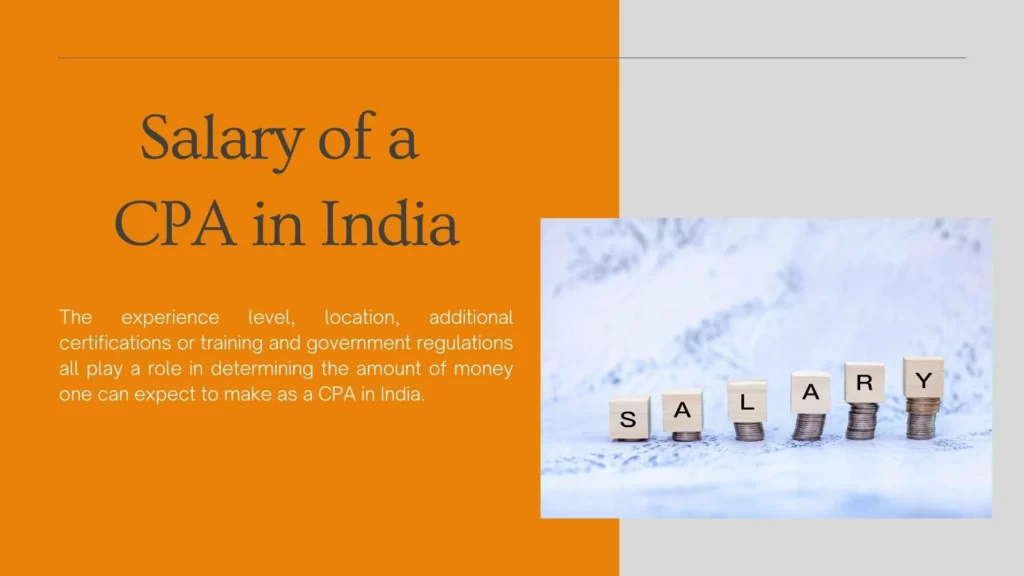
When it comes to the salary of a CPA in India, there are many factors that determine how much a professional earns. The experience level, location, additional certifications or training and government regulations all play a role in determining the amount of money one can expect to make as a CPA in India.
Experience Level: How long you have been working as a CPA has an effect on your salary. Generally speaking, the more experience you have on the job, the more money you can expect to make. A beginning CPA salary may be around INR 2 lakhs per annum and can grow up to INR 15 lakhs per annum for senior accountants with multiple years’ worth of experience and qualifications.
Location Variation: Where you work can directly impact your salary as well. The cost of living varies from place to place so salaries typically reflect those differences. For example, CPAs working in large cities such as Bangalore or Mumbai may make more than their peers working in smaller cities or towns due to higher demand for their services and localized price inflation.
Qualified Professionals Pay Scale: Experienced accountants who hold certifications such as CA/ICWAI/CS may also be able to command higher salaries than other CPAs without those same qualifications. These additional credentials demonstrate that someone is willing to invest time and money into becoming better educated and trained in their field – which employers appreciate!
Additional Certifications/Training: Taking classes or obtaining additional certifications or training could also increase your pay rate over time.
Challenges Faced By a CPA In India
The first challenge aspiring CPAs face is the licensing requirements and qualification criteria she must meet to become a CPA. Every state has its own set of licensing requirements, and potential CPAs must put in a lot of effort to ensure they meet all the requirements. On top of that, each state also sets a certain set of qualifications for aspiring CPAs which can include completing certain courses or taking certain exams.
Once the qualifications are met, professional training needs to be completed in order to ensure knowledge and competence as a practising CPA. Professional training usually takes around two years and requires passing exams such as the Uniform CPA Examination or the StateSpecific Examinations (SSE). While these exams are hard enough on their own, they become even harder due to India’s complex regulations and taxes which need to be mastered during training.
Pursuing a career as a CPA also comes with limited opportunities since there aren’t many jobs available. This can be further complicated by cutthroat competition in the market as countless professionals are vying for just a few opportunities. To make matters worse, it’s now becoming increasingly difficult to get into public sector accounting jobs in India due to massive layoffs and recruitment freezes across government departments.
Job roles of a CPA in India
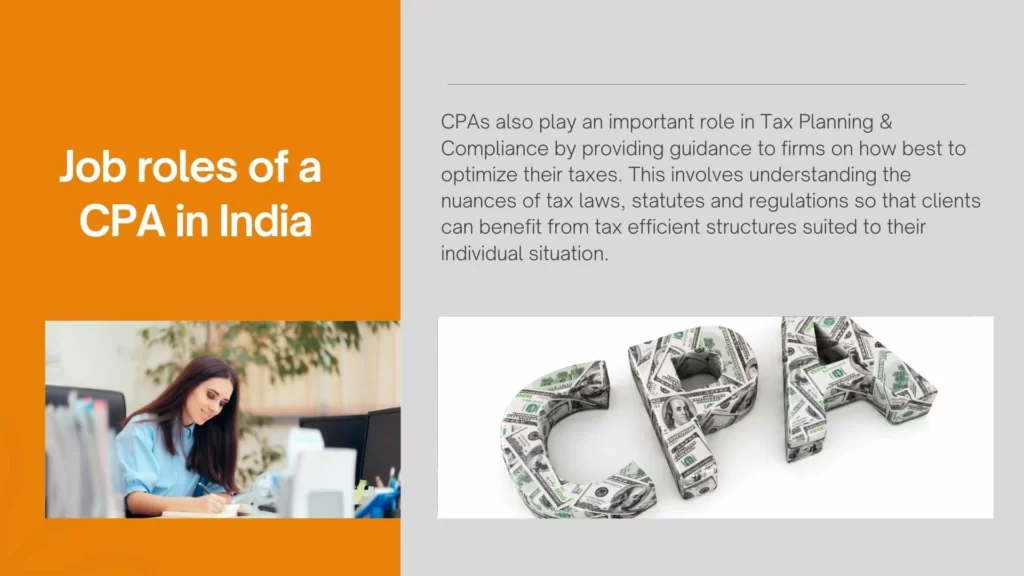
As a CPA in India, you have the responsibility of helping individuals, businesses and organizations make sound financial decisions. From accurately understanding and interpreting financial reports to offering sound advice based on your experience, CPAs provide comprehensive services that businesses can count on.
In India, the role of a CPA in India is largely focused on Financial Reporting & Analysis. This includes determining the accuracy of a company’s financial statements and understanding their implications. You will also be responsible for auditing the financial records on behalf of clients or regulators to ensure that they comply with applicable laws and regulations. In addition to this, you will be accountable for preparing detailed financial statements in compliance with Generally Accepted Accounting Principles (GAAP) that help paint an accurate picture of a business’s overall finances.
CPAs also play an important role in Tax Planning & Compliance by providing guidance to firms on how best to optimize their taxes. This involves understanding the nuances of tax laws, statutes and regulations so that clients can benefit from tax-efficient structures suited to their individual situations. By having a CPA handle these matters instead of a company doing it themselves, firms are able to save time, money and effort in ensuring their business continues to abide by the law whilst maximizing its profits.
In many cases, CPAs also provide Consulting Services that help companies make better-informed decisions related to growth opportunities or cost savings initiatives. This could involve providing analytical assessments related to mergers & acquisitions or other commercial strategies such as pricing strategies or market entry strategies. On top of this, CPAs may specialize in research or Forensic Accounting services which involve creating reports containing various types of evidence such as bank records or documents related to litigation cases.
Scope of CPA in India
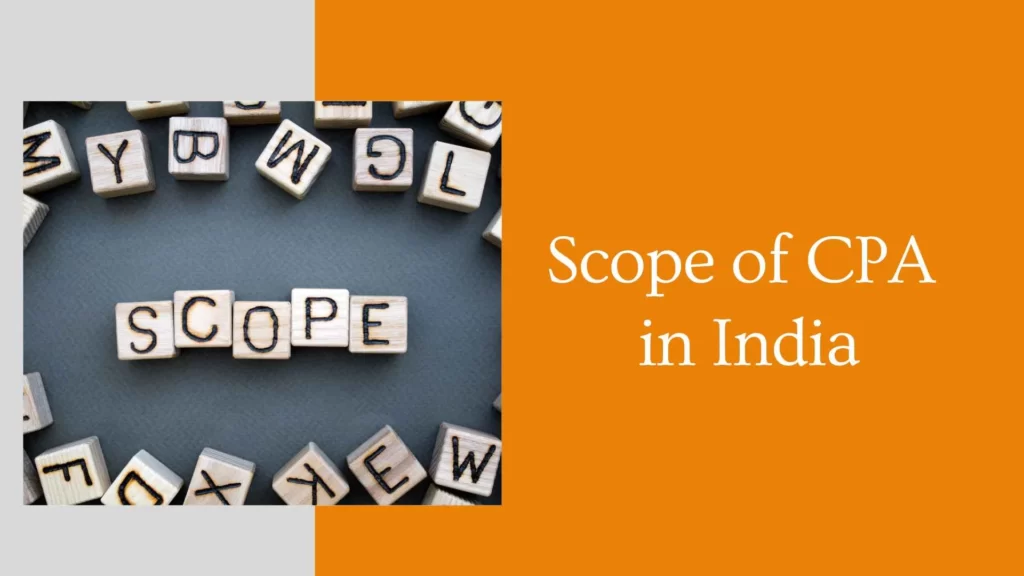
Whether you are just starting your career or looking to expand your credentials, this guide can help you understand the scope of CPA qualifications available in India, the registration process, and the additional certifications required. It also provides an overview of work opportunities, professional organizations for networking, fees and cost structure for CPA courses, a comparison with global standards of certification, and the importance of continuing education.
The Indian Institute of Cost Accountants (ICAI) grants the recognized certification of Cost Accountants (CMA), which is similar to the global certification of Certified Public Accountants (CPA). The ICAI board administers two examinations – Foundation, and Intermediate. To be eligible to take those exams, you must have obtained a relevant college degree or diploma in commerce or business. The CMA course spans 8 papers over two years. Once you pass these exams, you will be able to apply for CMA registration.
In addition to passing these exams, you may also be required by your state to obtain additional certifications such as Certificate in Information System Audit (CISA) or Chartered Financial Analyst (CFA). In order to receive any other certifications or licenses from regulatory bodies like SEBI or RBI related to specific areas such as security exchange regulations or banking regulations respectively, it might be necessary for CMA holders to appear for additional certification exams based on specific requirements.
Once certified as a Cost Accountant (CMA), there are many work opportunities available in India such as Internal Audit Role In A Firm/ Company An Institution Or A Bank; Auditors For Companies That Need Assistance With Regulatory Compliance.
Conclusion
Once licensed as a CPA in India, annual renewals are required by ICAI to maintain your licensure status. As part of this renewal process, CPAs must complete at least one hundred hours of professional development activities each year as well as submit proof that they abide by all professional conduct rules and regulations laid out by ICAI.
Becoming a CPA in India can be a fulfilling career choice as it offers many opportunities for growth and success. With the proper qualifications and training from ICAI along with ongoing dedication to professional development activities each year, individuals are able to achieve their dreams of becoming a CPA in India
Frequently Asked Questions
To take the CPA Exam in India, you must either already be an eligible CPA Examination candidate or become one. You must also be a citizen or a long-term resident of India, Bhutan, or Bangladesh.
In India, to be eligible to take the CPA exam, you must have graduated in commerce and accounting (B.Com, BBA, MBA in Finance, M.Com), which is equivalent to 120 credits. Some states also accept candidates who have passed CA/CMA/Intermediate/CS exams. Additionally, you must have a valid international passport.
A Certified Public Accountant (CPA) earns a higher salary than a Chartered Accountant (CA). While CA salaries are still reasonable, they are much lower than a CPA’s. It typically takes seven months to one year to become a CPA, while it can take up to five years to become a CA.
Becoming a CA or CPA takes hard work and dedication. The CPA exam can be completed in 6-12 months, while it takes 3-4 years to become a CA. Both exams are difficult, but the length of time suggests that the CA is more comprehensive. Comparing the two exams is not fair.
Choosing between a CPA and CA can be difficult, as both credentials come with their own advantages and disadvantages. If you want to work abroad or for a global corporation, becoming a CPA is your best bet. Alternatively, if you want to start your own audit practice in India, becoming a CA is the way to go.
Becoming a Certified Public Accountant requires passing the CPA exam, which can be difficult. To give yourself the best chance of success, enrol in a top-rated CPA certification course for the right guidance. The exam is rigorous for several reasons.
The average salary for a CPA in India is about 6 lakh rupees per year. According to Indeed, the average US CPA salary in India is 9.25 lakh rupees per annum. The pay range for a US CPA working at one of the Big 4 firms in India can be from 12.5 to 20.4 lakh rupees per annum.
Indian university education is three years long and is equivalent to 90 total credits in the U.S., or 30-semester credits. Therefore, if you have a B.Com and would like to pursue CPA certification, you can do so.
The exam of CPA in India is a 4-hour long test divided into four sections. It evaluates the skills and knowledge of candidates. Candidates must complete all sections within 18 months. They can take any section in any order during one open testing window.
The duration of CPA in India is between 12-18 Months.




